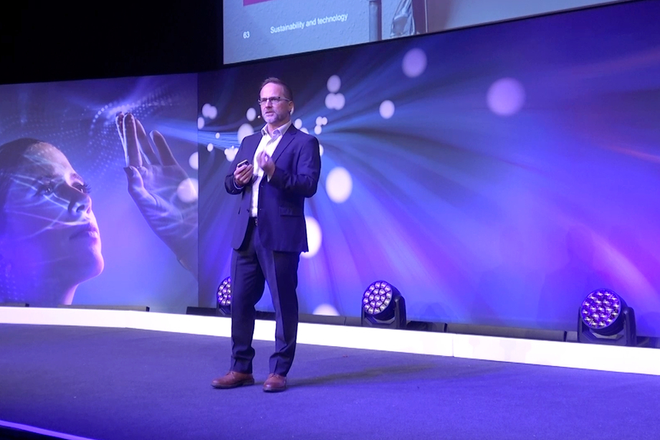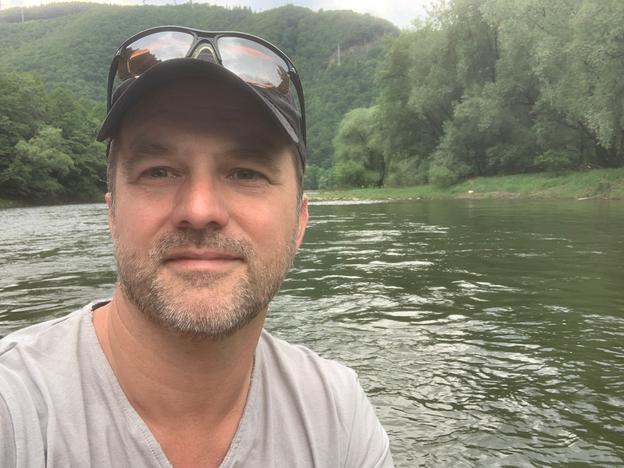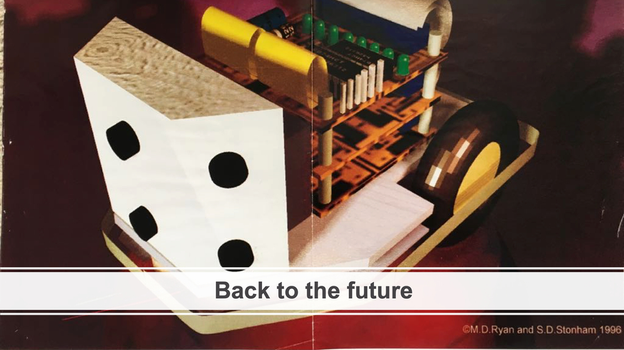Scott Stonham recalls exactly where he was when he realized what he wanted to do with his career.
After years of working for big companies, then start-ups, and back to big companies again, he suddenly knew he had to do something different. And it was as he was lazing around by an old swimming pool in Turčianske Teplice, a spa town in central Slovakia, on a family holiday in 2019 that he worked out what it was going to be.
“I knew I had to do something with more of an impact, something that was going to do good,” Stonham tells The Slovak Spectator on a Zoom call.
For years the British tech analyst had worked for global telecommunications companies. He had fancy job titles and was well paid, and worked on projects that helped bring mobile internet to the world and created a market in Europe for smartphone GPS.
He felt, though, that something was missing in his career and began working with start-ups. But it was not long before these were bought up by big firms and Stonham found himself back where he had started, and trapped in a cycle he very much wanted to get out of.
He had spent two years running his own innovation scouting business and thinking about what he wanted to do next when, sitting beside that pool, he came up with the idea of launching a website about the use of technology for sustainable goals, or what he describes as ‘technology with purpose’. He called it: ‘Well, That’s Interesting Tech’.
Business struggles in Slovakia
The website presents features on small firms and technology that contribute to a sustainable future for mankind, for instance helping protect biodiversity, or eradicating poverty.
“I believe that technology can be a really powerful force for change, but we have to use it wisely,” Stonham says.
The many years he spent working in not just technology, but sales and marketing, has not just informed his thinking about how technology affects society, but left him with some feelings of guilt over what he says are the problems technology has caused, he admits.
He says he also feels some anxiety about what kind of world his own children will be living in a decade and more from now, although he is quick to point out it is these same worries which have driven him to raise awareness about global challenges and how technology can help tackle them.
It was his children who brought Stonham to Slovakia. Though he currently lives in Reading, often called the ‘Silicon Valley’ of the UK and home to major leading tech corporations such as Huawei, Pepsico, Cisco, Prudential, and Microsoft, Stonham did much of his early work on setting up and developing the website from his wife’s hometown of Martin in central Slovakia.
The couple and their three children moved there soon after the start of the Covid-19 pandemic.
“I wanted the kids to learn Slovak. I wanted them to be exposed to their other culture that forms them,” he says of their decision to relocate.
Looking back on the two years the family lived in Slovakia, Stonham admits that professionally things could have been better.
Although he made an effort to cooperate on some projects with the local council, the pandemic and his almost complete lack of any command of the Slovak language held things back. But as much as that, he says, he struggled to find people in the area who were entrepreneurially-minded.
“My parents were business owners. I grew up with that, but I couldn’t find anybody who thought like me [in Martin],” the tech analyst says. “My creativity, my kind of vision was just beginning to drain away.”
He adds that he found several start-ups in Bratislava, but that nobody was really interested in what he was doing.
“But that could have been just me,” Stonham wonders, noting he had more conversations with Slovak start-ups when he was not living in Slovakia.
Stonham believes things would have panned out differently if the circumstances under which he arrived in central Slovakia had been different.
Despite this, he looks back fondly on his time in Slovakia. He says he found many things in the country which were inspiring, such as a sense of community that has no need to communicate and plan everything through social media. And, of course, its natural beauty.
“Every time I opened the door, and I looked out onto the mountains and the trees, I thought: this is what we need to protect,” Stonham says.
Growing impact, not the business
He says that he would be happy to live in the mountains around Martin, but admits that being back in the UK where he can work with more start-ups, bigger tech firms, and in education, has its benefits.
“It’s got my creativity up and running again,” he says, pointing out it lets him do one of the things he enjoys most – putting interesting people in touch with each other.
He gives an example of how he introduced the Climate commissioner for UK higher and further education, Steve Frampton, with the boss of a solar panel producing company. The pair went on to work together on projects installing panels in colleges.
“These two were a really good fit,” he recalls.
Since returning from Slovakia, Stonham has been catching up with work not related to his website – work he says he could not have done while in Slovakia and which in the last few months he estimates has now taken up more than two thirds of his time.
But he has not abandoned the website, which he believes is the most important work he has ever done.
It includes his tips on how people can reduce their digital carbon footprint by doing small things, like turning down the brightness of their screen or turning off their smart speaker overnight to save kilograms of carbon emissions over the year.
“That’s an important message because there’s a tremendous amount of climate anxiety,” Stonham says before paraphrasing Vincent van Gogh’s famous quote that “great things are not done by impulse, but by a series of small things brought together”.
“That’s kind of really what I’m trying to do here,” he says, adding that he has turned down several jobs from big tech companies in recent years to carry on working on the site.
“What’s more important to me is growing my impact, not necessarily growing a business,” he says of the site’s future.
The good “Terminator”
Stonham dates his passion for technology to 1985 when he saw the box-office hit “Back to the Future”, but credits his uncle, an electrician, for inspiring him to turn that passion into a career.
“He always used to give me gadgets to fiddle and play with,” he says.
This came in handy when he was studying cybernetics and control engineering at the University of Reading where he and a friend created a three-wheeled “insect” robot as a final course project (Stonham confesses the only time it worked perfectly was the day they did their project presentation for their teachers).
His passion for technology remains undimmed after a lengthy career in the industry, especially as he continues to develop his website business.
Stonham says as he looks back, he has a clear memory of something his mother one said to him about his future soon after watching the second Terminator film: “You’re either going to go and make something that will destroy the planet, or make it better.”
“You can see which way my career’s gone now, right?” he laughs.



 Scott Stonham presents the topic of sustainability to about 600 employees at an internal company event at the ICC in Birmingham. (source: S.S.)
Scott Stonham presents the topic of sustainability to about 600 employees at an internal company event at the ICC in Birmingham. (source: S.S.)
 Scott Stonham on the Váh river during his time spent in central Slovakia. (source: S.S.)
Scott Stonham on the Váh river during his time spent in central Slovakia. (source: S.S.)
 Scott Stonham and Matthew Ryan's final-year project at the University of Reading was an "insect" robot. (source: S.S.)
Scott Stonham and Matthew Ryan's final-year project at the University of Reading was an "insect" robot. (source: S.S.)